MercoPress. South Atlantic News Agency
Tag: Federal Reserve
-
Friday, October 9th 2015 - 07:21 UTC
Fed close to increasing rate, according to minutes; IMF again calls on Yellen for prudence
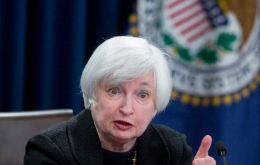
The US Federal Reserve believes the US economy was close to warranting an interest rate hike in September but policymakers decided it was prudent to wait for evidence a global economic slowdown was not knocking United States off course.
-
Friday, September 18th 2015 - 07:52 UTC
Fed leaves rates unchanged on concerns about a weak world economy
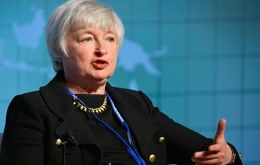
The US Federal Reserve kept interest rates unchanged on Thursday in a nod to concerns about a weak world economy, but left open the possibility of a modest policy tightening later this year. In what amounted to a tactical retreat, the US central bank said an array of global risks and other factors had convinced it to delay what would have been the first rate hike in nearly a decade.
-
Friday, September 11th 2015 - 10:34 UTC
Fed's rate decision next week: conflicting positions between US voters and EM central bankers

As the Federal Reserve gets ready to debate its interest rate policy stance next week, a poll released Thursday finds a strong majority of US voters surveyed want central bankers to refrain from boosting short-term interest rates, and to instead concentrate on using monetary policy to further boost the job market.
-
Wednesday, September 9th 2015 - 07:45 UTC
World Bank calls on the Fed to delay raising rates fearing 'panic and turmoil' in emerging markets
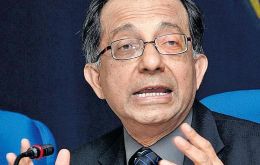
The international economics establishment has stepped up pressure on the Federal Reserve to delay raising interest rates, with the World Bank the latest institution to warn that the US central bank risks sparking “panic and turmoil” in emerging markets if it increases rates next week.
-
Wednesday, September 2nd 2015 - 08:30 UTC
Despite China, for the Fed and BoE, an interest rate raise still on the table
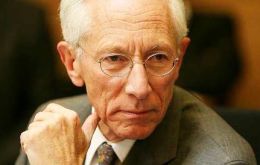
United States inflation will likely rebound as pressure from the dollar fades, allowing the Federal Reserve to raise interest rates gradually, Fed Vice Chairman Stanley Fischer said on Saturday in a speech careful not to overreact to a possible Chinese slowdown.
-
Thursday, August 20th 2015 - 06:38 UTC
Fed approaching interest rate hike but 'reasonable confidence' still short

An improving job market edged the US Federal Reserve closer to an interest rate hike at its July meeting even as policymakers continued to express broad concerns about lagging inflation and the weak state of the world economy, according to minutes released on Wednesday.
-
Friday, July 31st 2015 - 06:25 UTC
Former Fed chief says discussion is not monetary policy but government spending
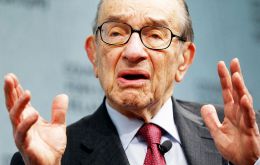
Former Federal Reserve Chairman Alan Greenspan warns that government spending “extremely dangerous” to the future of the US economy. Greenspan decried a rise in entitlement costs, which he contended have pressured the U.S. economy.
-
Friday, July 31st 2015 - 05:59 UTC
US economy expands at an annual 2.3% in 2Q; strong consumer spending

The US economy grew at an annualized pace of 2.3% in the three months to June, official figures have shown. The figure - the first estimate of growth in the second quarter - followed an upwardly revised growth rate of 0.6% in the first three months of the year. The Commerce Department said growth was boosted by increased consumer spending and cheaper fuel prices.
-
Friday, July 31st 2015 - 05:33 UTC
Dollar in Chilean Pesos climbs to its highest level since December 2008
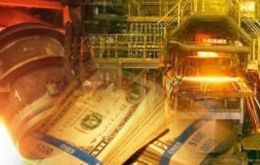
The US dollar ended Thursday trading in the Chilean money exchange market at its highest since December 2008, that is 674 Pesos for the greenback. Currently and seven years ago the main reason has been the US monetary policy: the sub-prime crash in the US and fears of the debacle expanding to the rest of the world, and now growing chances of the Federal Reserve deciding on a rise of the prime rate.
-
Thursday, July 30th 2015 - 09:04 UTC
Fed pleased with labor market gains but inflation remains 'soft' distant from 2% target

The United States Federal Reserve on Wednesday decided to leave its benchmark federal funds interest rate unchanged at between 0 percent and 0.25 percent, while it offered an optimistic assessment of the world's biggest economy and hinted that a rate hike remains on the short-term horizon.
